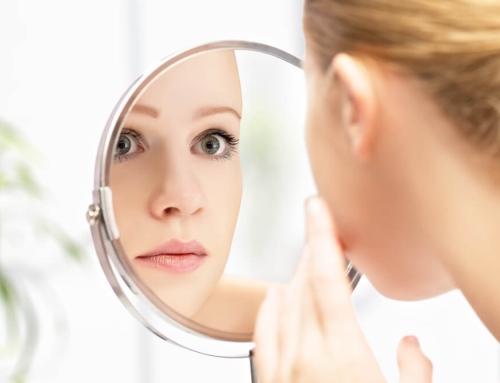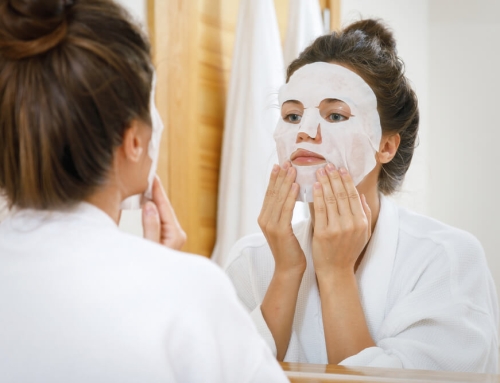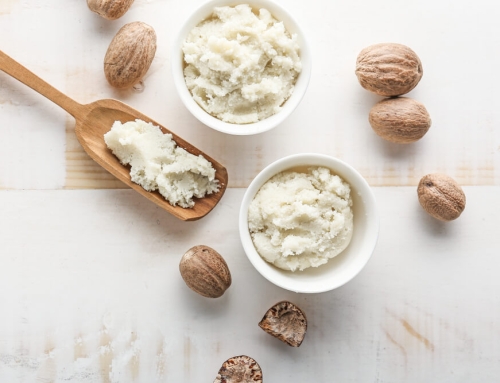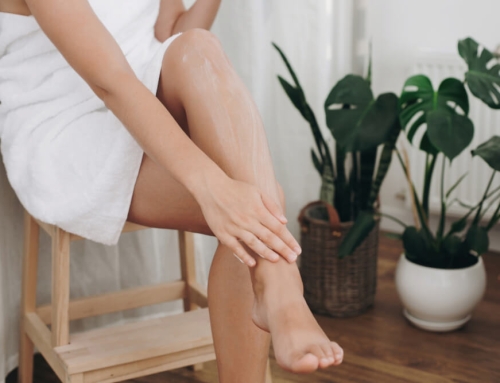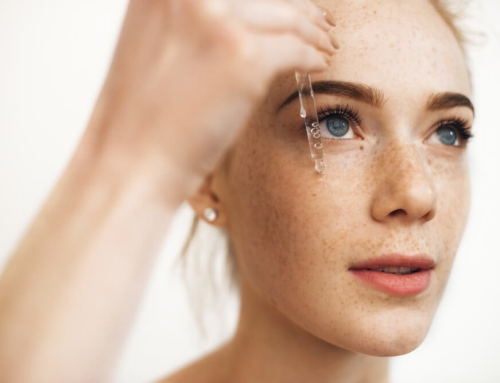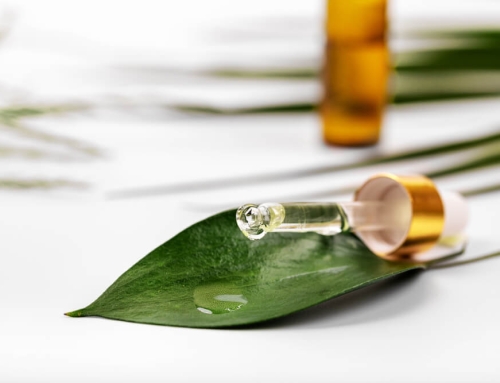Pollution is a serious problem, not just for your general health but for your skin in particular too. With 92% of the population living in a city that does not comply with the air quality standards set by the World Health Organization, pollution is likely affecting your skin much more than you realize.
How?
The effects of pollution can manifest in several different ways, including:
- A compromised skin barrier
- An inability to retain moisture
- Acne
- Eczema
- Hives
- Accelerated skin aging, including fine lines and wrinkles
- Dark spots
Unfortunately, when it comes to your skin, the detrimental effects of pollution, nicknamed polluaging, are only visible once deep damage has been done, making this extremely difficult to treat. Just like with everything else, prevention is so much better than cure, so here are six steps that you can take to protect your skin from pollution.
Daily Double Cleansing
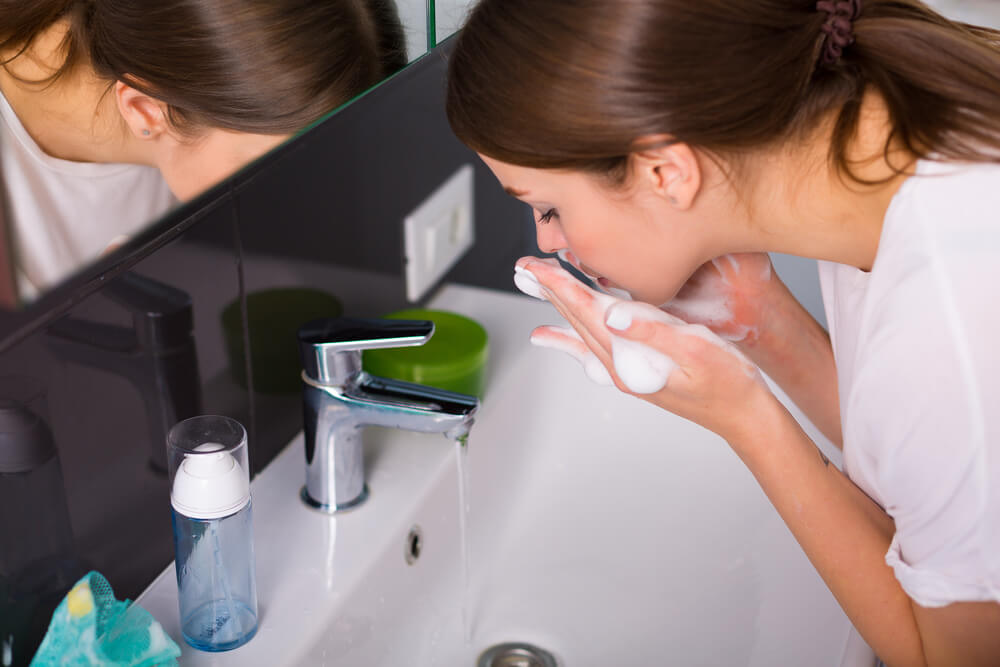
One of the most important steps that you can when it comes to anti-pollution skincare is to ensure that you thoroughly cleanse your skin each evening. This will clear away all of the pollutants that have built up on the surface of your skin over the course of the day, preventing them from being able to delve deeper and cause more destruction.
Regular cleansing may be adequate for those who do not live in a polluted area, but, for everyone else, double cleansing is well worth considering.
What is double cleansing?
It’s a two-step cleansing process:
- Begin by washing your face with an oil-based cleanser to draw out oil-based impurities, including pollutants, sebum and cosmetic products
- Follow up with a water-based cleanser to tackle water-based impurities, including dirt and sweat
Yes, this may add a few extra minutes to your skincare routine, but double cleansing can have a huge impact on ridding the skin of pollutants.
Wondering if double cleansing is suitable for all skin types?
Yes, although it all depends on the cleanser formulas you use. You will still need to ensure that the cleansers you pick are suited to your skin type.
One thing to keep in mind…
If you are going to be upping your cleansing game, you may also want to introduce a toner into your skincare routine.
Why?
Because the actual cleansing agents in a cleanser are known for disrupting the skin’s natural pH balance. This can then lead to the onset of several different skin concerns, which is why a toner that rebalances your skin’s pH level is a great step after cleansing.
Don’t own a toner?
Give the OROGOLD 24K Purifying Toner a try – it is soothing and gentle, with its main ingredients being:
- Aloe vera leaf juice
- Cucumber fruit extract
- Organic chamomile extract
Use a Range of Topical Antioxidants
Antioxidants have become quite the buzzword in skincare, and for good reason too. These potent compounds are able to neutralize the free radicals in your skin. These would have otherwise caused some major damage to the DNA in your skin cells, along with the protein fibres that are responsible for keeping your skin firm and smooth. And yes, pollution is a huge trigger when it comes to the formation of free radicals in the skin.
Due to the growing understanding of how important antioxidants are, you will likely find that the majority of skincare products out there have now been formulated with at least one antioxidant. This is definitely helpful, but, ideally, you should be incorporating a wide range of different antioxidants into your skincare routine if you really want to combat pollution damage.
Why?
Because antioxidants work better together. Each one can enhance the effects of the next, and some also work to increase skin penetration, encouraging maximum absorption of all of the other antioxidants you are using.
Since each antioxidant works in its own way, there are some that are better than others when it comes to dealing with pollution.
Which antioxidants should you be using?
Vitamin C should be the first one you reach for, because it has been proven to be one of the most effective antioxidants for neutralizing free radicals. Not only that, but vitamin C also has a brightening effect on the skin, which can help to counter the dark spots that pollution frequently causes.
The following antioxidants have also been found to be extremely beneficial in protecting the skin from pollution:
- Resveratrol – with numerous protective properties, resveratrol also calms and brightens the skin
- Vitamin E – highly effective at stabilizing the skin barrier, therefore preventing pollutants from entering into the skin (read more about this further down)
- Niacinamide – also known as vitamin B3, niacinamide tackles pollution while also increasing skin hydration levels
- Green tea catechins – the polyphenols within green tea are some of the most powerful antioxidants out there, not only fighting free radicals but also strengthening collagen, reducing redness, and protecting against cancer
When it comes to delivering antioxidants into your skin, serums are usually best.
Why?
Because serums are thin and lightweight in consistency, meaning that they can reach the deeper layers of your skin, where they will have the most effect.
If you are looking to add a new serum into your anti-pollution skincare arsenal, give the OROGOLD 24K Vitamin C Booster Facial Serum a try. It contains two forms of vitamin C, along with vitamins A and E.
Consume an Antioxidant-Rich Diet
Applying antioxidants topically is important, but you need to also be nourishing your skin with these antioxidants from within, preferably through the food that you eat.
You probably already know that fresh fruits and vegetables are a fantastic source of dietary antioxidants, but let’s get a little more specific…
Here are some of the most antioxidant-rich foods out there:
- Pecan nuts – not only rich in antioxidants, but also a great source of minerals and healthy fats. Of course, pecans are also high in calories, so you will need to limit the amount you consume
- Blueberries – many studies suggest that blueberries have the highest amount of antioxidants compared to other common fruits and vegetables
- Strawberries – high in vitamin C, as well as a potent group of antioxidants known as anthocyanins
- Kale – packed with antioxidants, as well as powerful amounts of vitamins A, C and K
- Dark chocolate – this may surprise you, but dark chocolate is even higher in antioxidants than blueberries and strawberries
Wondering if you could just take some oral antioxidant supplements instead?
You could, but experts all tend to agree that natural, whole food antioxidant sources are far more beneficial, especially since dosage can be quite difficult to get right with supplements.
Build Up a Strong Barrier
Your skin’s outer layer consists of a protective lipid barrier that performs two main roles:
- Keeping the skin hydrated by preventing moisture from evaporating out of the skin
- Preventing bacteria and impurities, including pollutants, from entering into the skin
Unfortunately, it is so easy for the skin’s natural barrier to end up damaged. Everything from sun exposure and aging to cosmetic ingredients and over-exfoliation can compromise this protective barrier, which then means that pollutants are able to enter the skin much more easily.
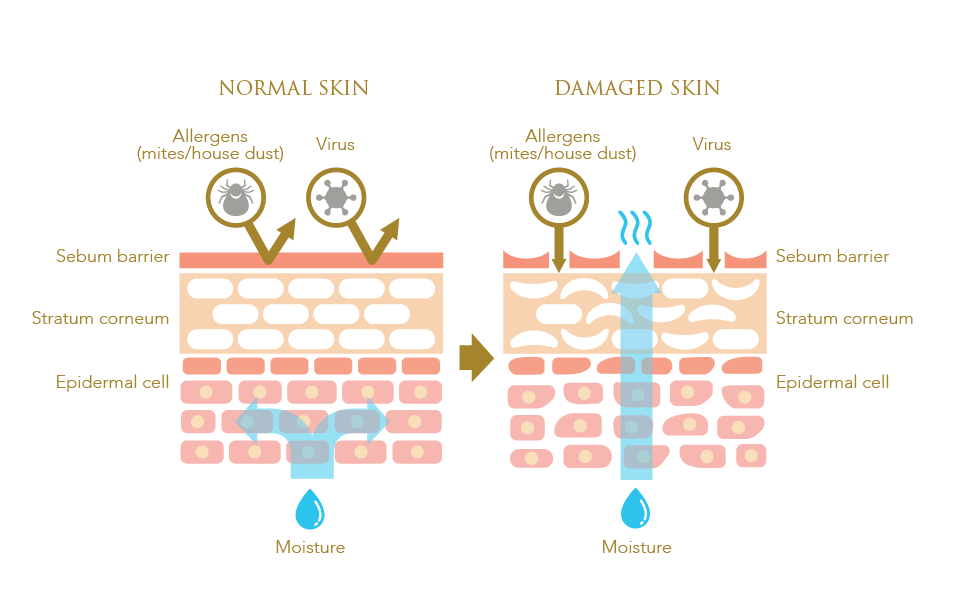
So, how do you build this barrier up?
There are two main things that you can do; reinforce your skin’s natural barrier while also using ingredients that will create their own additional barrier.
Let’s begin by discussing how you can strengthen your skin’s natural barrier…
There are several steps that you can take to strengthen and protect your skin’s barrier, such as:
- Making sure you are gentle when cleansing and exfoliating
- Using a toner after cleansing (see first section)
- Using products that do not contain any harsh ingredients
- Incorporating niacinamide and ceramides into your skincare routine
- Using skincare products that contain omega fatty acids, which repair barrier function
- Eat foods that are high in omega fatty acids
- Keep stress levels down, as the stress hormone is known for disrupting skin barrier function
- Always wear sunscreen
Of course, it takes time for a damaged skin barrier to heal, and you don’t want to leave your skin vulnerable while yours is repairing…
This is why you should also be making use of ingredients that will form their own additional layer of protection over your skin, making it even harder for pollutants to force their way in. These ingredients are known as occlusives, and there are several to choose from, including:
- Beeswax
- Allantoin
- Jojoba oil
- Olive oil
- Cocoa butter
Pretty much all waxy and oily substances act as an occlusive, giving you plenty of choice.
It was mentioned above that antioxidants are best applied in a serum. However, when it comes to occlusives, these should be applied through a moisturizer at the final stage of your skincare routine. Of course, a facial oil would also work well too, and these are also great for delivering slow-release antioxidants into your skin.
Since occlusives form their own additional layer of protection over the surface of the skin, applying any other products over the top of them would be pointless, since those ingredients would not be able to penetrate through the occlusive layer you have already applied.
Beware of Light Pollution
Air pollution tends to be the type of pollution that people focus on the most, but there are others that you should definitely not forget about…
One form of pollution that is becoming increasingly prevalent in modern day lives is light pollution. No, this doesn’t refer to sunlight – instead, light pollution refers to the unnatural sources of light that you experience on a daily basis.
One of the most damaging sources of light pollution are electronic devices, as these emit blue light that can dramatically accelerate skin aging. This wavelength of light weakens the skin’s surface layer (therefore allowing more air pollutants to enter the skin), while also causing inflammation and discoloration.

Fortunately, there are a few steps that you can take to protect your skin from blue light, such as:
- Install a blue light filter on your devices, which minimizes the amount of blue light emitted from the screen
- Disable blue light on your devices, if they have this option
- Make use of protective antioxidants
Don’t Forget About Water Pollution
Your skin is likely exposed to tap water on a daily basis; each time you wash your hands, each time you take a shower, and even from within if you regularly drink tap water. While water is so important when it comes to the health of your skin, polluted water can have the opposite effect.
Even if you live in the most developed of cities, you are still not immune to water pollution…
These days, tap water is full of everything from chlorine to heavy metals, all of which will damage your skin in their own way. Tap water can also be pretty acidic, which will disrupt your skin’s pH level and compromise your skin’s natural protective barrier.
One step that you can take to prevent this is by using a water filter. This will filter away any impurities, preventing them from making their way onto your skin or into your body. You can install a filter onto every tap in your home, even your shower, for maximum protection.
Making use of a rich moisturizer immediately after your skin has come into contact with polluted water can also help to counter the dryness that chlorine in water can cause. Ideally, pick one with plenty of antioxidants and occlusives.
Pollution can cause so much irreversible damage to your skin, and, no matter how hard you try, it is something that you simply cannot get away from. So, in order to keep your skin looking its best as you age, make sure that you take the necessary steps to protect your skin from the harmful effects that pollution can have.


